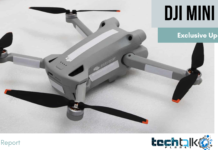
To compete with games like Meta Quest 2 and co., the Vive XR Elite is too pricey. The device is still a significant step for HTC and perhaps the VR industry.
The Vive XR Elite and Playstation VR 2 were the most notable headsets at CES 2023, which is already gone. The press and trade exhibition attendees’ initial impressions were largely favourable.
This gives us optimism that HTC has a product with wide appeal up its sleeve after a protracted string of hardware blunders (Vive Cosmos, Vive Pro 2, Vive Flow).
Since the Vive XR Elite is set to go on sale in March, we will soon learn if this is in fact the case.
New Ground For HTC
The price is undoubtedly a turnoff; in EU nations, HTC charges 1,399 Euros for the headgear and VR controller. The cost is $1099 in the US. It’s a joke whose punchline no one gets that HTC emphatically markets the product to consumers.
Nevertheless, the proposal to create a platform for mobile VR apps based on the Meta Quest Store demonstrates how serious HTC’s goals are.
In the launch window, more than 100 VR apps will be made available, including popular programmes like Demeo, The Last Clockwinder (one of the finest VR games of 2022), and Virtual Desktop. The standalone version of the PC VR visual miracle Hubris (review) was released for the Vive XR Elite at CES, showcasing the headset’s technical prowess. There was news of further well-known titles.
HTC is pioneering with this Store endeavour since it has never attempted to create a software platform of this kind, focusing instead on fully-featured 6-DoF VR apps for end users, with the Vive Flow or the B2B device Vive Focus 3. This will probably be a bigger deal for HTC and the VR industry than the launch of the first Vive XR Elite model.
The standalone VR market is beginning to see some competition after years of Meta holding the monopoly.
The standalone VR market, which HTC and Pico are now both chasing and which Meta has been virtually nurturing on its own over the past three years, is currently the most promising VR market.
By the end of this year, consumers will be able to purchase mobile VR apps on three separate VR platforms, which was unthinkable in 2020 and 2021. One of the best news of the year is that there is finally competition in this industry. For HTC, programmers, and customers.
For now, it doesn’t matter if the Vive XR Elite costs too much to directly compete with the Meta Quest 2 and the Pico 4. More crucially, HTC is now returning to the fray and contributing to a self-sustaining consumer VR ecosystem after years of focusing on B2B.
The hardware, which is now in its first generation with the Vive XR Elite, will continue to be improved upon and upgraded. The independent platform itself is what’s truly novel and will continue to expand over time. The quasi-monopoly held by Meta is not broken, but at least a counterweight is produced.














































